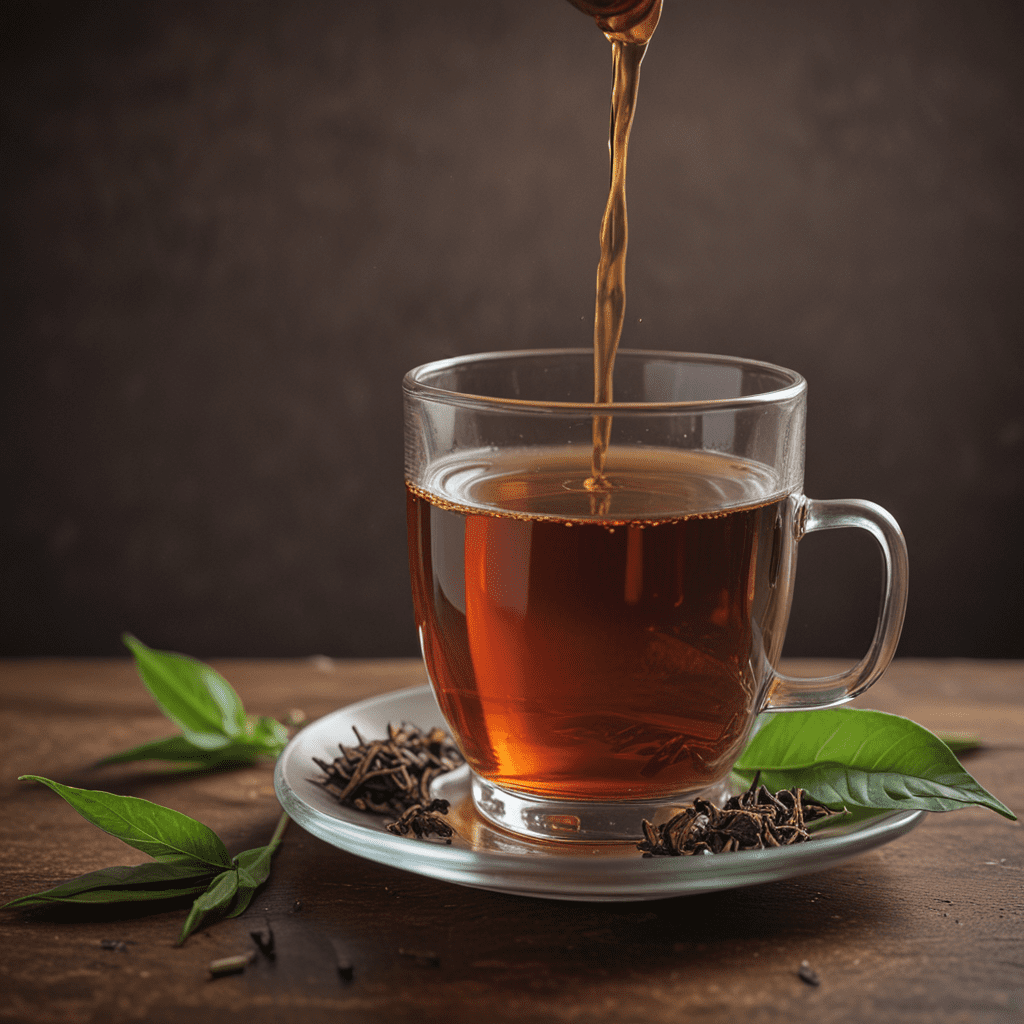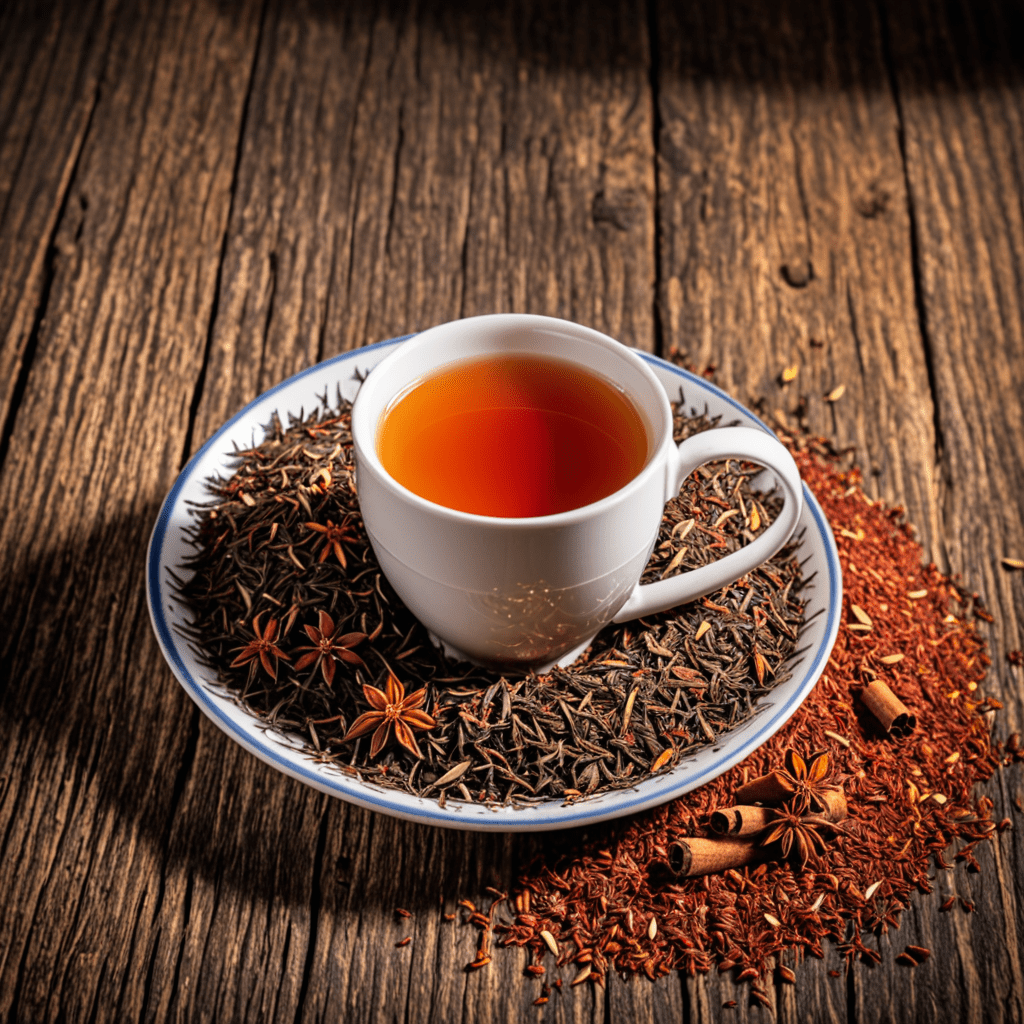Introduction: Assam Tea – A Legacy of Excellence
Assam tea, hailed from the verdant valleys of Northeast India, stands as a testament to the region's rich tea heritage. This exquisite beverage, renowned for its full-bodied flavor and malty aroma, has captivated tea enthusiasts worldwide, making it one of the most sought-after black teas. Assam tea plantations, nestled amidst lush greenery and caressed by the mighty Brahmaputra River, paint a picturesque landscape that speaks volumes about the dedication and passion poured into cultivating this exceptional tea.
Historical Origins: From Wild Forests to Cultivated Gardens
The origins of Assam tea can be traced back to the 19th century, when British tea planters stumbled upon wild tea plants thriving in the forests of Assam. Recognizing the potential of these indigenous tea bushes, they began establishing tea plantations, transforming the region into a thriving tea-growing hub. Today, Assam is synonymous with tea cultivation, with vast estates stretching across the Brahmaputra Valley, producing some of the world's finest teas.
Geographical Marvel: The Brahmaputra Valley and Assam's Tea Estates
The Brahmaputra Valley, a fertile alluvial plain, serves as an ideal sanctuary for Assam tea plants to flourish. The region's tropical climate, characterized by abundant rainfall, warm temperatures, and ample sunshine, creates the perfect conditions for tea bushes to thrive. The Brahmaputra River, a lifeline for Assam, provides essential irrigation to the tea estates, ensuring a consistent supply of water throughout the year. The unique combination of soil, climate, and topography has endowed Assam tea with its distinctive character and exceptional quality.
Cultivation Practices: Nurturing the Tea Plant
Assam tea plants are meticulously cared for throughout their lifecycle. Skilled tea planters tend to the bushes attentively, providing them with the optimal environment to grow and reach their full potential. Regular pruning, fertilization, and pest control measures are meticulously implemented to ensure the health and productivity of the tea bushes. The careful attention to detail paid at every stage of cultivation is reflected in the superior quality of Assam tea leaves.
Harvesting Techniques: The Art of Selective Plucking
The art of harvesting Assam tea is steeped in tradition and experience. Tea pluckers, known as "chah-bagans," meticulously handpick the finest tea leaves, ensuring that only the most tender and flavorful leaves are selected. The selective plucking process, typically performed twice a year during the spring and summer seasons, is crucial in preserving the delicate balance of flavors and aromas that characterize Assam tea. The precise timing and technique employed during harvesting significantly impact the overall quality of the final product.
Processing Methods: From Leaf to Black, Green, and White
After harvesting, Assam tea leaves embark on a journey of transformation, where they are processed to attain their distinctive characteristics. The primary processing method for Assam tea involves oxidation, a process where enzymes within the leaves react with oxygen to develop the rich flavors and colors associated with black tea. Assam tea is predominantly produced as black tea, known for its robust and full-bodied taste. However, green and white teas, which undergo minimal oxidation or none at all, are also produced in limited quantities, offering unique flavor profiles and health benefits.
Distinctive Characteristics: Full-Bodied, Rich, and Malty
Assam tea is renowned for its full-bodied, rich, and malty flavor, making it a favorite among tea enthusiasts. The unique combination of growing conditions and processing techniques imparts Assam tea with its characteristic malty notes and a deep, earthy flavor. The robust flavor of Assam tea makes it an excellent choice for brewing with milk, creating a rich and satisfying cuppa. Assam tea's strong flavor also makes it a popular choice for blending with other teas, adding depth and body to the overall flavor profile.
Health Benefits: A Treasure of Antioxidants and Polyphenols
Beyond its captivating taste, Assam tea is also revered for its health-promoting properties. Assam tea is a rich source of antioxidants, substances that combat the damaging effects of free radicals in the body. These antioxidants help protect the body against various ailments, including chronic diseases such as cancer and heart disease. Additionally, Assam tea contains polyphenols, compounds linked to improved cardiovascular health, reduced inflammation, and enhanced cognitive function. Regular consumption of Assam tea may contribute to overall well-being and vitality.
Global Recognition: Assam Tea's Renowned Reputation
Assam tea has garnered global recognition for its exceptional quality and taste. It is exported to over 80 countries worldwide, where tea enthusiasts savor its distinctive flavor and aroma. Assam tea has received numerous accolades and awards, solidifying its position as one of the most sought-after black teas on the international market. The global demand for Assam tea is a testament to its reputation for excellence and the dedication of the tea growers and producers in the Brahmaputra Valley.
Sustainable Practices: Preserving the Tea Heritage for Future Generations
Sustainability is at the heart of Assam tea cultivation. Tea planters in the region are committed to preserving the environment and ensuring the longevity of the tea industry. Sustainable practices such as organic farming, water conservation, and ethical labor practices are widely adopted across Assam's tea estates. These initiatives aim to protect the delicate ecosystem of the Brahmaputra Valley while ensuring the well-being of tea workers and the surrounding communities. By embracing sustainable practices, Assam tea producers are safeguarding the future of the industry and ensuring that generations to come can continue to enjoy the exceptional quality of Assam tea.
Frequently Asked Questions (FAQs)
What is the best way to brew Assam tea?
Assam tea is typically brewed using a standard teapot or teacup. Use one teaspoon of loose-leaf tea or one teabag per cup of water. Pour boiling water over the tea leaves and steep for 3-5 minutes, depending on desired strength.
Is Assam tea caffeinated?
Yes, Assam tea contains caffeine, but the amount varies depending on the brewing method and the specific type of tea. Generally, black Assam tea has a higher caffeine content than green or white Assam tea.
How long does Assam tea last?
Properly stored in an airtight container in a cool, dry place, Assam tea can retain its freshness for up to 12 months. It is recommended to consume Assam tea within 6 months of opening the package to enjoy its optimal flavor and aroma.



